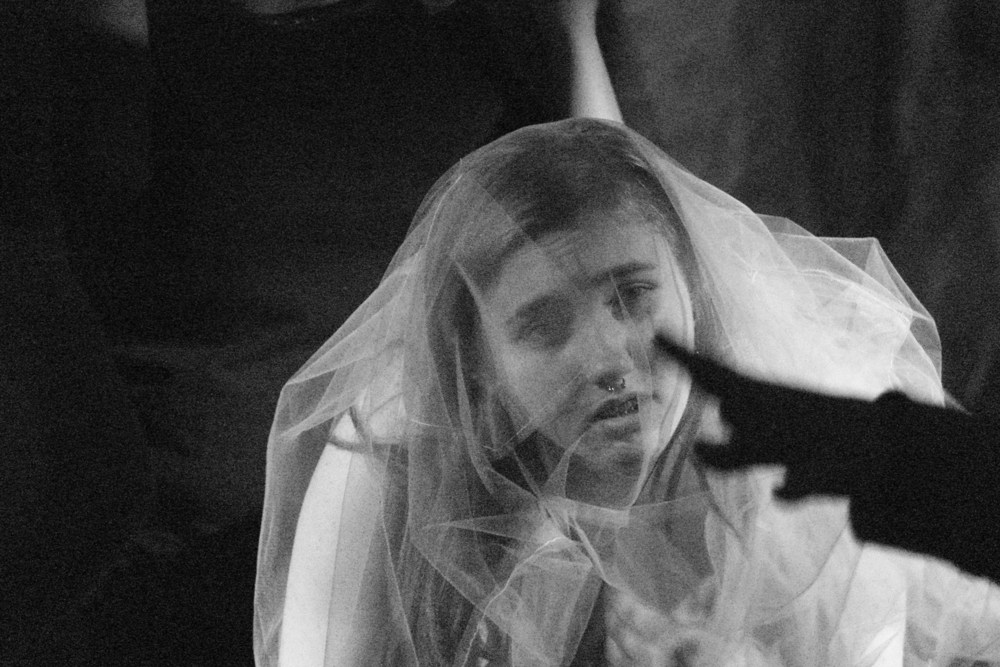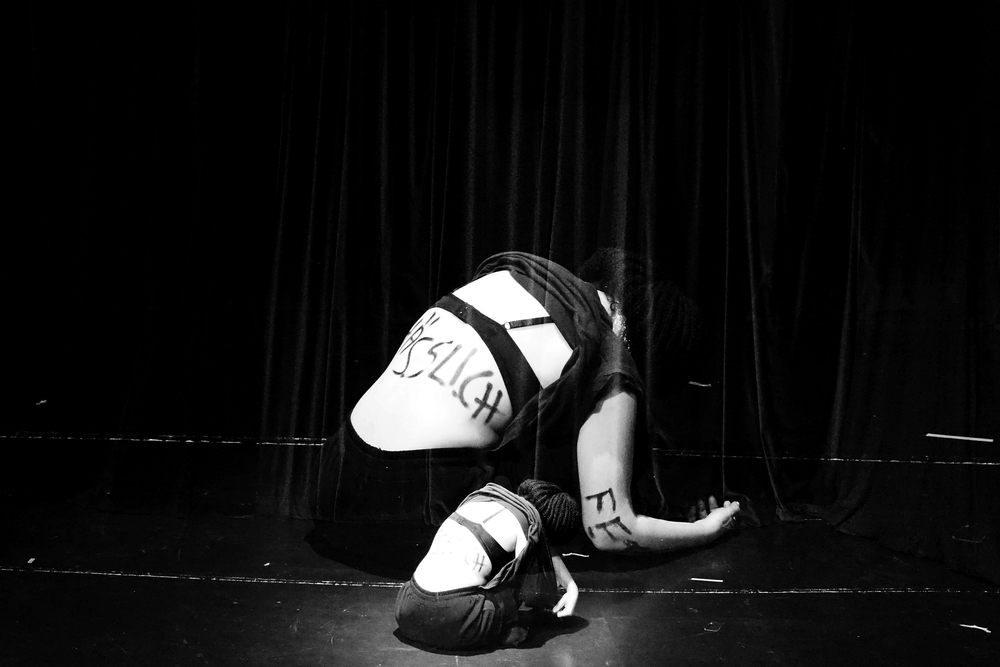The project funded under the Nauka dla Społeczeństwa [Science for Society] programme has been implemented at the University of Lodz since October 2022. Its goal is to research and describe the theatre of Polish migration operating after 1989.
Theatre in migrant communities stimulates many areas – new literature is created, a community of artists and audiences is created, the intercultural perspective is expanding
– explains Karolina Prykowska-Michalak.
 A still from Zofia Delest's performance (photo: Rainer Strzolka)
A still from Zofia Delest's performance (photo: Rainer Strzolka)
The artistic and cultural activity of the Polish political emigration of the post-war period, and especially of recognised artists and writers living abroad, belonged to one of the main trends in humanistic research in the second half of the 20th century.
In the face of successive waves of migration in the 21st century, the need to continue studies on the culture of contemporary Polish migrants emerged, and now this issue is gaining a new dimension. This project meets it by undertaking, among other things, documentation of contemporary theatres operating abroad, which undoubtedly contribute to the national heritage
– adds Prof. Prykowska.
The studies conducted by an interdisciplinary team of researchers from the University of Lodz and the University of Wrocław have ambitions (apart from creating a description and typology of Polish theatre in exile) to participate in the international discourse thanks to being included in intercultural research and interdisciplinary studies. The research perspective assumes an intercultural approach, which consists in defining the multiple functions of a given theatre in the theatre space of the country of residence in relation to other migrant theatres and the local community.
THE MIGRANT THEATRE OF ZOFIA DELEST
Zofia Delest (in the German-speaking space Sophie Delest) has been practicing socially engaged migrant theatre in Braunschweig since 2018. She shows individual and collective stories of minorities (not only Polish) living in Germany and gives the representatives of the multicultural community a voice and activates the current discussions on the stage.

A still from Zofia Delest's performance (photo: Rainer Strzolka)
Her non-standard nature of work has been noticed and appreciated not only in Germany. Zofia Delest has been actively involved in the discourse of Polish theatre abroad since 2022, presenting her performances, e.g. at Wileńskie Spotkania Sceny Polskiej.
The artist is currently preparing a modular performance, "Rzeź w języku esperanto", which concerns the understanding of freedom and how this concept has developed in various cultural circles over the years. The modularity of the performance consists in the fact that the performance can be broken down into individual elements and freely exchanged, added or subtracted, which gives the piece a completely different character.
The performance can be described as "work in progress" – it is possible to replace the stories contained in the text with more recent events or reach for more distant history and focus on events from the past. The performance can focus on one specific region and time or, as the author has decided, deal with the global and timeless dimension of the discussed phenomenon.
When creating the project, real stories and fragments of conversations with representatives of the multicultural society in Germany were used. Then interviews were conducted with actors from Poland and Ukraine.

According to Zofia Delest, art should be the voice of the people, hence the first version of the text is strongly inspired by interviews, discussions, artistic workshops or a city game, which were conducted for over a year. Representatives of 14 countries located on four continents spoke about what freedom is.
I try to explain to representatives of other cultures that our definitions are not always compatible, different concepts can be understood in different ways
– says Zofia Delest in an interview with Izabela Pietras, a third-year student of theatre production and show organisation at the Faculty of Philology of the University of Lodz.
In this context, cooperation with youth dance schools is also significant. The young artists are encouraged to create their own choreographic interpretations of the presented stories.
Zofia Delest's workshop performance, prepared for the University of Lodz, will be an opportunity to talk about what migrant theatre is today, what functions it performs and what goals it sets for itself.
Migrant theatre is an important issue nowadays for at least two reasons. The first reason is the lack of knowledge (scientific publications) about the theatre of current Polish migrants – that is, about contemporary cultural heritage, its development, progress and achievements.
The second reason is the prospect of a successively increasing number of migrants in Poland, which should encourage research into European and world experiences in the field of cultural development of contemporary (post)migrant societies.
– concludes Prof. Prykowska.
Edit: Bartosz Kałużny (Communications and PR Centre, University of Lodz)
Source: Karolina Prykowska-Michalak, Izabela Pietras
The mission of the University of Lodz is to conduct reliable research and actively disseminate facts and research results so as to wisely educate future generations, be useful to society and courageously respond to the challenges of the modern world. Scientific excellence is always our best compass. Our values include: courage, curiosity, commitment, cooperation and respect.
